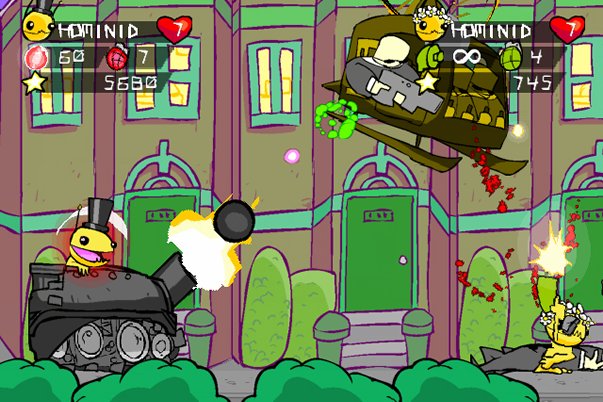The death of hardcore gaming?
Wii is taking over. Casual games have conquered the web. Is hardcore gaming dead? We grill industry insiders to find out
Not everyone agrees, however. "I would call [the move toward casual gaming] an expansion rather than a shift," said Tom Fulp, founder of Flash portalNewgrounds.comand co-founder of indie developer The Behemoth. "As in, the game industry is expanding to include a wider audience."
Fulp, whose site hosts thousands of user-submitted games and animations, sees casual games as actually broadening - rather than diminishing - the market for hardcore games by attracting new potential customers to the fold. Additionally, Fulp said, "companies that make a lot of money from casual games may take a bigger gamble on their hardcore games as a way to gain prestige and recognition. Something from the heart, and something to pay the bills."

Above: In addition to running Newgrounds, Fulp is one of the creators of Alien Hominid, widely considered a shining example of ultra-hardcore 2D action
On his own site, he said, simpler games "made in a week" often draw in more players than games that take months to create, but it's the higher-quality, more involving stuff that enjoys long-term attention. "You could have a million people play and forget your game," he said, "or you could have 100,000 people play and remember it. I have faith in the smaller numbers over the long haul.
"As an analogy," Fulp said, "I'll say that I've never bought a CD by Britney Spears or 'N Sync, but I know they've sold a lot more CDs than my favorite bands. That doesn't stop my favorite bands, though."
Meanwhile, Bryan Trussel, Microsoft Casual Games' director of gaming platform services, said that there's no real threat to hardcore gaming: "Casual games are additive, not cannibalistic." Developers that shift their attention to casual games aren't doing so at the expense of their bigger projects, Trussel said, adding that "as casual gaming expands the marketplace, studios will expand to meet the demands of the growing pie."
Weekly digests, tales from the communities you love, and more
That's certainly true in the case of larger publishers, like Electronic Arts and Ubisoft, both of which recently created casual-game divisions, with Boogie and the upcoming My Coach series of self-help "games" being among the results. Despite the new focus on casual titles, however, neither company has pulled the plug on any of its upcoming next-gen games. But what about smaller companies like Majesco, which recently retrenched, quit making big-ticket games and focused all its efforts on casual projects like Cooking Mama? Will only the biggest development houses be able to create triple-A games in the future? Are hardcore gamers right to be nervous, after all?



